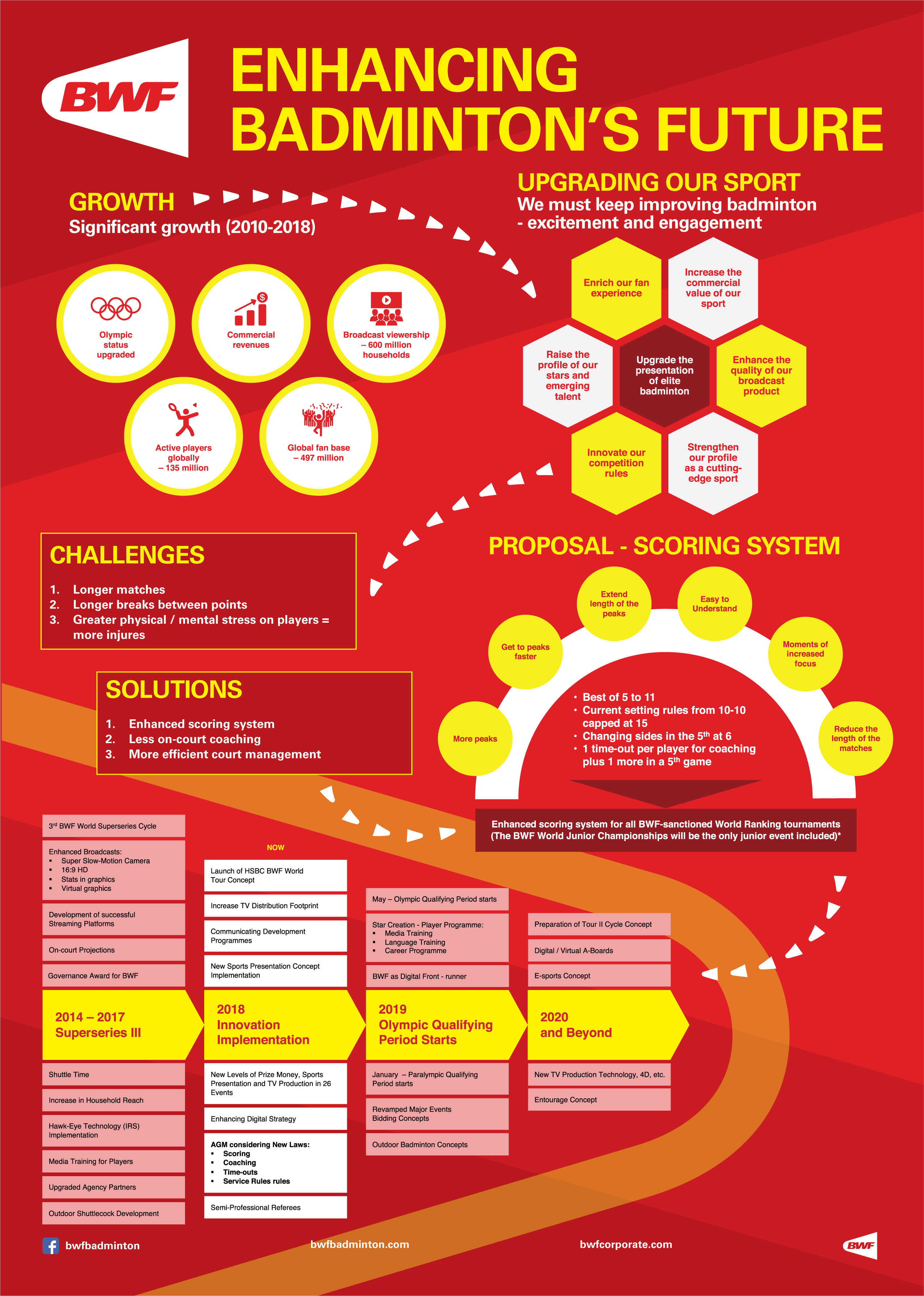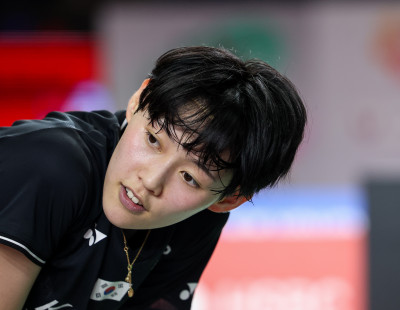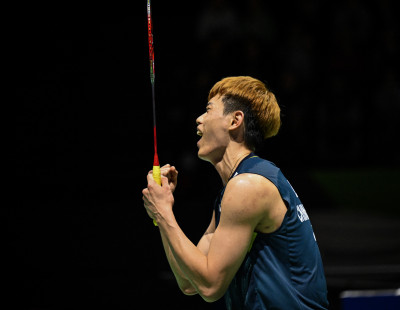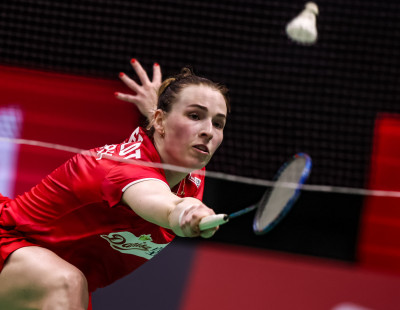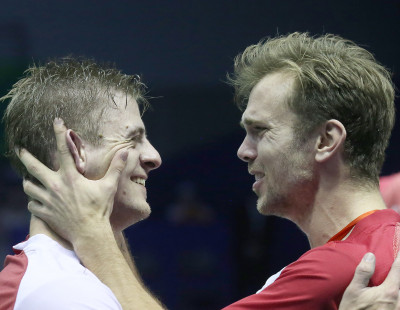The Badminton World Federation (BWF) Council will formally propose a suite of changes to enhance the sport at its Annual General Meeting (AGM) of members on Saturday 19 May.
These recommendations are being made to ensure badminton – which has enjoyed a steady rise in key areas in recent years – remains competitive in the fast-paced, cutting-edge sports-entertainment industry. If these proposals are passed, they are scheduled to come into effect on Monday 10 December, 2018, with the HSBC BWF World Tour Finals in Guangzhou being the first event at which the new scoring system would be used.
At its meeting last November, the BWF Council endorsed a package of initiatives which aims to build significant value for badminton. Some of these have already been introduced and the recent launch of the HSBC BWF World Tour is another platform to roll out more of these upgrades and enhancements. The BWF Council’s primary focus is to optimise the presentation of badminton at the highest level. BWF has a strategic, 360-degree approach that covers these elements:
- Enriching fan experience – attracting new fans
- Raising the profiles of stars and emerging talent
- Increasing the commercial value of badminton
- Strengthening badminton’s global recognition as a cutting-edge sport
- Enhancing the quality of its broadcast product
- Innovating competition rules
Under the banner Enhancing Badminton’s Future, the BWF Council has publicly outlined its rationale in detail, including the goal of building greater suspense in badminton and shortening the length of matches. It has also highlighted other considerations such as boosting badminton’s commercial value and sports presentation.
“Shorter matches will sharpen badminton as a commercial product and make it a more attractive television product. That translates into higher revenues and the resulting effect of that is higher player income,” said BWF President Poul-Erik Høyer.
He noted BWF cannot afford to rest on past successes – but rather needs to be bolder and to go further in innovation.
Among the main enhancements that require the AGM’s endorsement are:
- A new and enhanced scoring system of 5 to 11.
- A reduction in on-court coaching.
- A service-law change to introduce a fixed height for serves.
Changing the scoring system – with specific focus on elite international tournaments – is an essential part of this strategic, multi-dimensional plan to innovate our competition rules.
“Our aim is to enhance and enrich our sport with wide-ranging initiatives that will realise badminton’s vast global potential; taking it to unprecedented heights in all spheres.
“We must continue attracting and exciting fans – fans who have countless, amazing choices in a competitive global sports market.
“It’s time for change: time to bring in more peaks, more excitement and increase broadcast and fan appeal,” said Høyer, urging his colleagues “to embrace change and do what is best for badminton”.
Furthermore, the BWF President reasoned the proposed innovations ultimately have the players’ interests at heart and can collectively improve their futures in diverse ways.
Presenting an infographic – Focusing on Our Players – of the positive impacts which enhanced rules could have for players, he listed less physical pressure, longer playing careers and increased earnings among the primary benefits, especially for those competing at top level.
“As outlined in our Strategic Plan 2016-2020, players are at the centre of our decisions and a significant part of our mandate is to provide the optimal environment in which they can flourish as professionals,” he noted.
This latest step, Høyer pointed out, is in keeping with BWF’s many initiatives to continuously advance badminton, including upgrading sports presentation, improving broadcast production and introducing innovative technology.